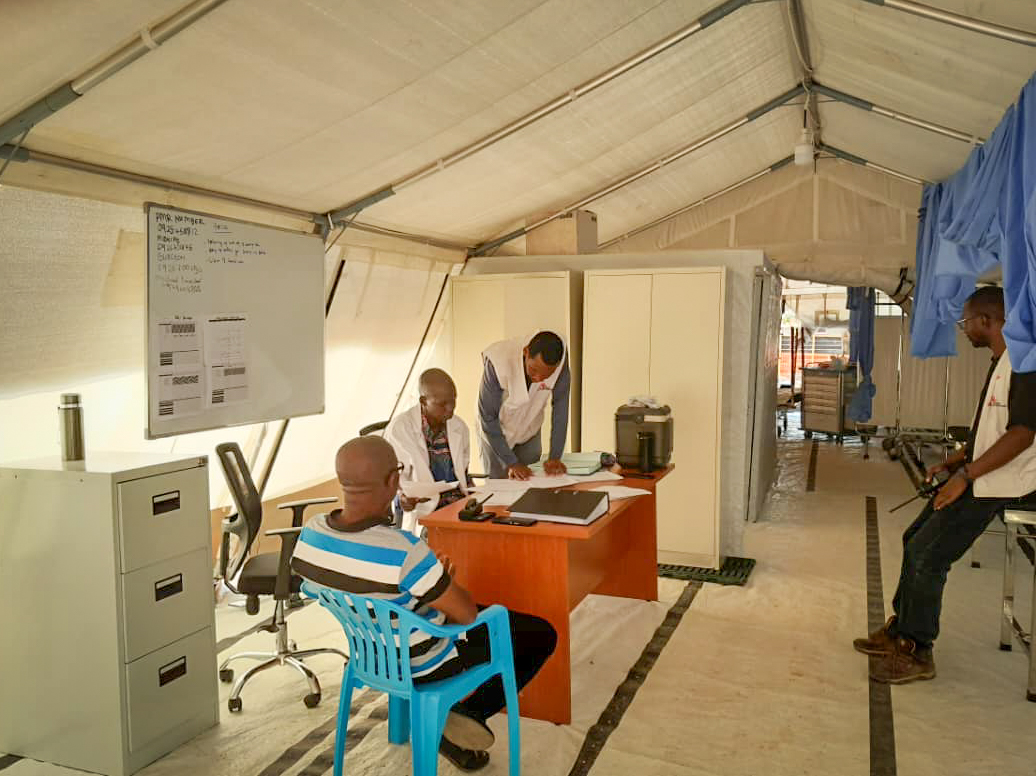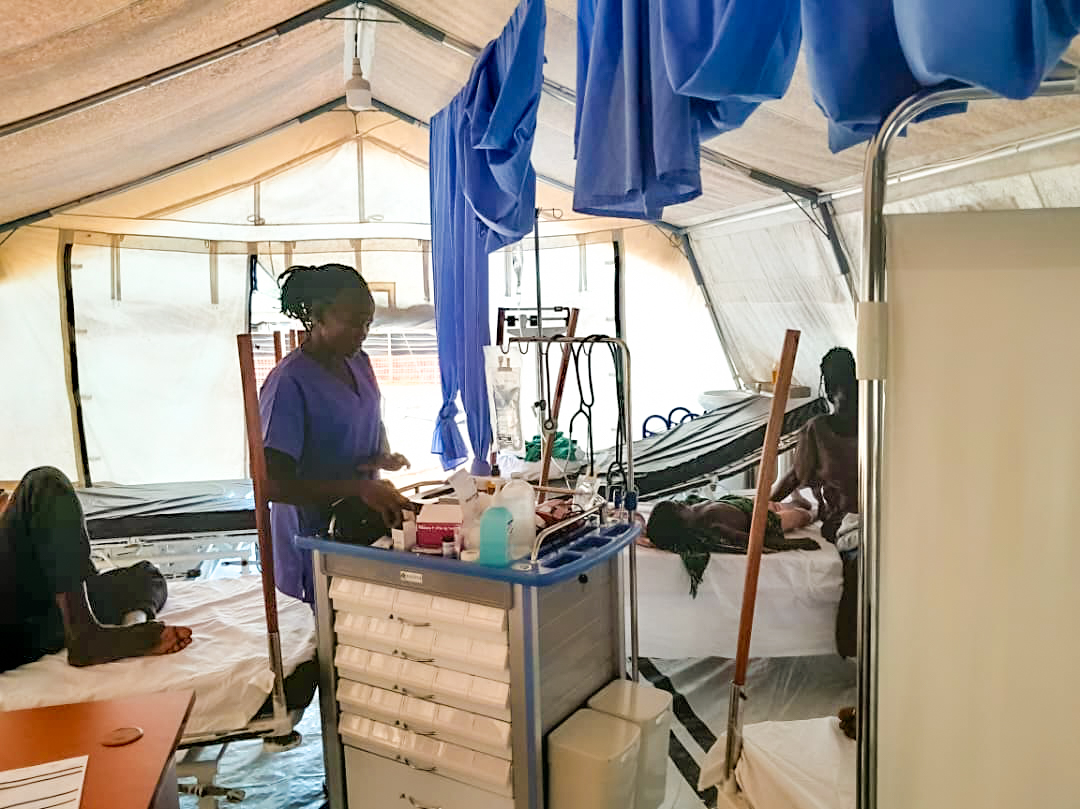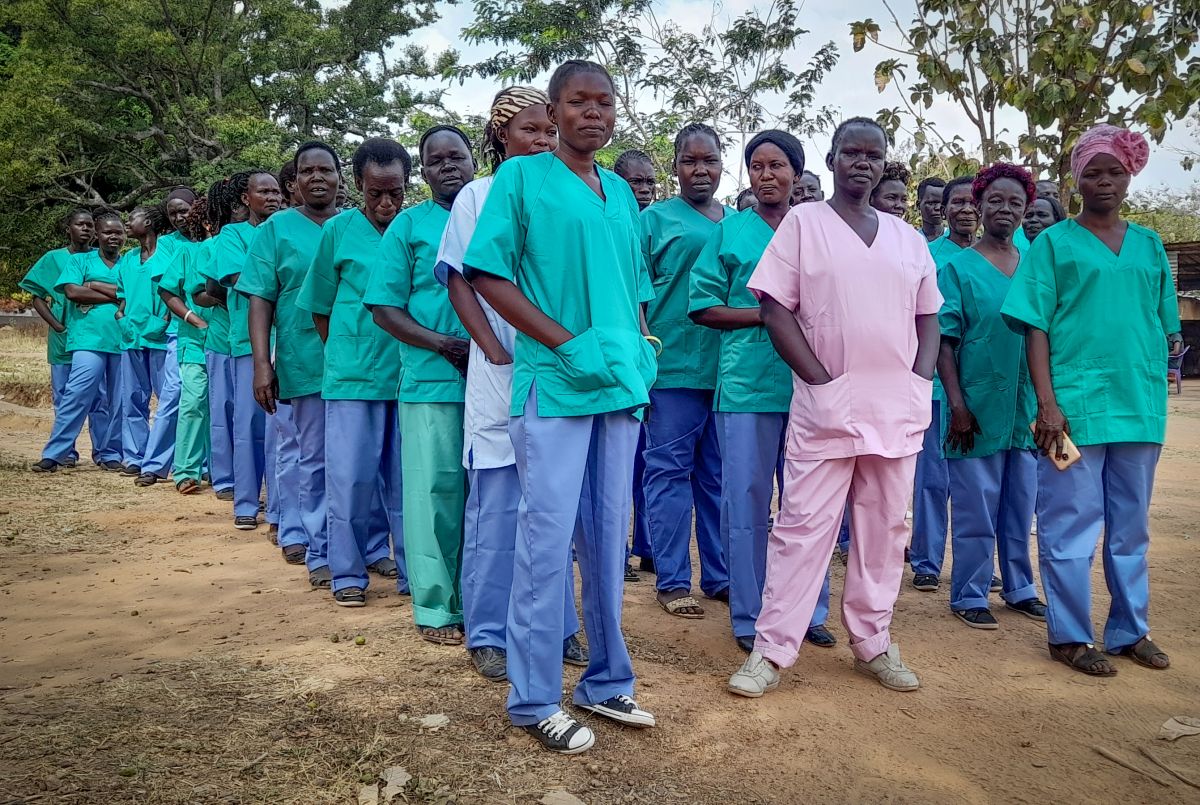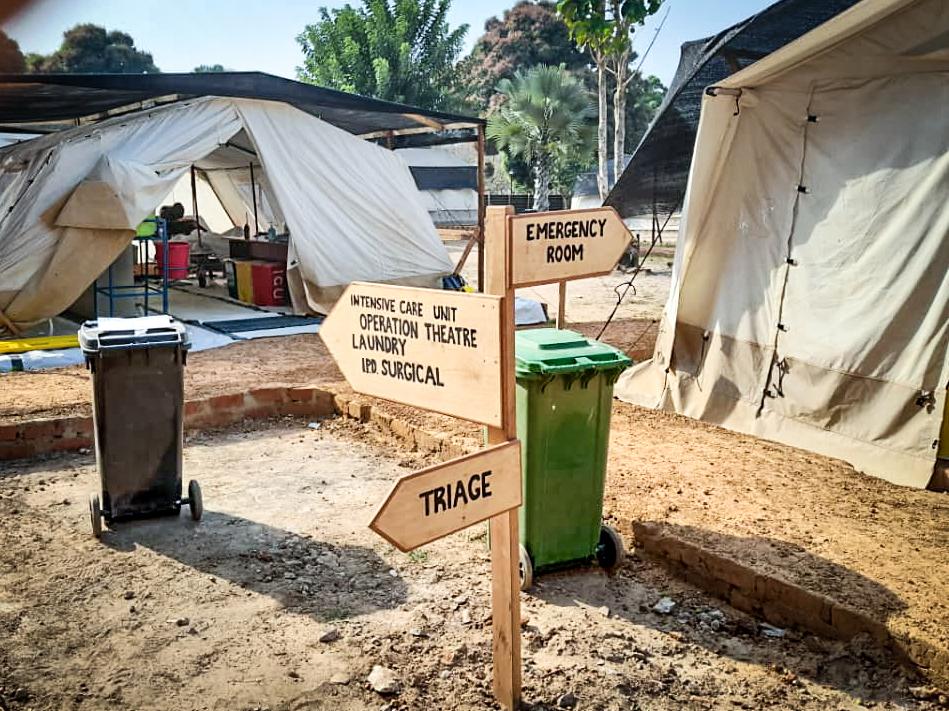JUBA: On 1 February 2023, Médecins Sans Frontières (MSF) and the Ministry of Health (MoH) resumed secondary level healthcare services in the Kajo Keji County Civil Hospital in Kajo Keji County in Central Equatoria state, South Sudan. The Kajo Keji County Civil Hospital, largely destroyed in the conflict previously, has started to offer quality healthcare in maternity, emergency room (ER), intensive care unit (ICU), surgery and internal medicine. Within 24 hours of the opening, the hospital received nine patients with gunshot wounds following unexpected incidents of violence. MSF is concerned that any further violent incidents, that cause much suffering and loss of lives, may also prevent people from coming to the hospital to seek the medical care they need.
Officials from Kajo Keji County and neighbouring Moyo district in Uganda, MoH and MSF staff, community members and other health organisations attended the hospital’s inauguration. The hospital, partially renovated by MSF, runs in partnership with the Ministry of Health to provide secondary level healthcare services relating to emergency and intensive care, medical and surgical emergency, pre-delivery care for pregnant women presenting complications, delivery and obstetrical surgeries in case of complications, medical care for sick newborn babies, ante-natal and post-natal care as well as family planning and care for survivors of sexual and gender-based violence in collaboration with other partners.

“The launch of the much-needed medical services in the hospital will help to ensure that people in Kajo Keji County are able to access quality healthcare for free. MSF is pleased to collaborate with Ministry of Health and other actors to provide medical humanitarian assistance where it is needed, including in response to incidents of violence,” said Jocelyn Yapi, MSF head of mission in South Sudan.
Kajo Keji, one of the six counties of Central Equatoria, was severely affected by violence in 2017, resulting in majority of the population fleeing to the refugee camps in Uganda. Some displaced communities have been returning to Kajo Keji to re-settle in their homeland and begin to cultivate their lands. However, a limited functioning health care system remains a major challenge. Out of 49 Primary Health Facilities in Kajo Keji, only 25 are functional including 22 supported by non-government organisations.

The local authorities and community have expressed appreciation and happiness over MSF’s support to re-establish the secondary level medical activities in the county.
“The hospital is coming back. I’m so happy that MSF are going to help our people in Kajo Keji County,” said Kiden Harriet Mickael, MoH Clinical Officer.
Alice, an MoH midwife stated: “I am very glad that our hospital is open today. Since we have gone to exile, there was no proper hospital to manage our pregnant women, children and our parents. I am very glad that you [MSF] are going to open the hospital for us.”

In the first 24 hours of the opening of the hospital, nine gunshot patients were rushed at the hospital following a violent incident in the county. Of these nine patients, three were children. They were reportedly injured as a result of shooting in the area. The patients were provided emergency care at the hospital and those in need of more specialised attention were referred to the healthcare facilities in other areas.
“Violent incidents like this are of grave concern to MSF because they lead to suffering, loss of lives and displacement of the people. Insecurity may make it too dangerous or risky for the patients to seek the healthcare they need at clinics and medical facilities like the Kajo Keji hospital,” Jocelyn Yapi added.
MSF teams are also visiting areas with displaced people to assess the situation, and will begin distributing essential items such as blankets, soaps, water containers, and bed nets to help prevent malaria.
